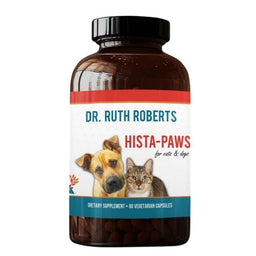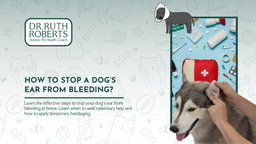Heart failure in dogs is a complex condition that can significantly affect their quality of life. Understanding the early signs, such as heart murmurs and cough, can be crucial in managing this condition effectively. This blog aims to shed light on the symptoms of heart failure, support, and management steps you can take to ensure your furry friend enjoys a long, happy life.
Understanding Heart Failure in Dogs
Heart failure occurs when the heart is unable to pump blood efficiently, leading to a buildup of fluids in the body, particularly in the lungs and abdomen. This condition can stem from heart disease, which may manifest as a heart murmur—a sound heard between heartbeats that indicates abnormal blood flow.
Symptoms of Heart Failure in Dogs
Recognizing the early signs of heart failure in dogs can be the key to managing the condition and extending your dog's life. Here are some symptoms to watch for:
- Persistent cough: A cough that lingers for more than a few days, especially if it worsens at night or during periods of rest, could indicate fluid accumulation in the lungs.
- Difficulty breathing: Look for signs of labored breathing, such as rapid breaths, open-mouthed breathing, or a heaving flank.
- Reduced activity: If your dog shows less interest in exercise or tires more easily during activities, it might be a sign of heart failure.
- Loss of appetite: Dogs with heart conditions may eat less or show little interest in food.
- Swelling: Accumulation of fluid in the abdomen can cause swelling, making the belly appear bloated.
- Fainting or collapse: Severe heart disease can lead to fainting spells due to inadequate blood flow to the brain.
Preventative Steps for Heart Health
Managing heart failure begins with a healthy lifestyle and regular veterinary check-ups. Here are some tips to keep your dog's heart healthy:
- Regular exercise: Maintain a regular exercise routine to help keep your dog fit and manage obesity, a risk factor for heart disease.
- Balanced diet: Feed your dog a balanced diet appropriate for their age, breed, and size. Consult your vet for dietary recommendations, especially if your dog is at risk for heart conditions.
- Routine veterinary visits: Annual check-ups can help detect signs of heart disease early. Your vet may recommend more frequent visits if your dog is at higher risk.
- Dental hygiene: Poor dental health can lead to bacteria entering the bloodstream and affecting the heart. Regular dental cleanings are essential.
- Monitor and manage other health conditions: Diseases like diabetes and high blood pressure can increase the risk of heart disease in dogs.
- Heart health Supplements: Whether your furry friend is currently struggling with heart health, or you want to be preventative, consider heart health supplements for dogs and cats.
Treatment Options for Heart Failure
Treatment for heart failure in dogs focuses on managing the symptoms and underlying causes. While heart disease is not curable, early intervention can significantly improve quality of life. Treatment options include:
- Medications: Various drugs can help manage heart failure by improving heart function, reducing fluid buildup, and controlling blood pressure.
- Dietary changes: A low-salt diet can help minimize fluid accumulation and reduce the workload on the heart.
- Weight management: Keeping your dog at a healthy weight reduces the strain on their heart.
- Regular monitoring: Follow-up appointments with your vet are crucial to monitor the progression of heart disease and adjust treatment as necessary.
Final Thoughts
Heart failure in dogs is a serious condition, but early detection and proper management can make a significant difference in your dog's health and longevity. By recognizing the symptoms of heart failure, including heart murmurs and persistent coughs, and taking preventative steps, you can help ensure your furry friend leads a healthy life. Always consult your veterinarian if you suspect your dog has heart problems. With the right care and attention, dogs with heart conditions can enjoy a good quality of life, full of love and happiness.










